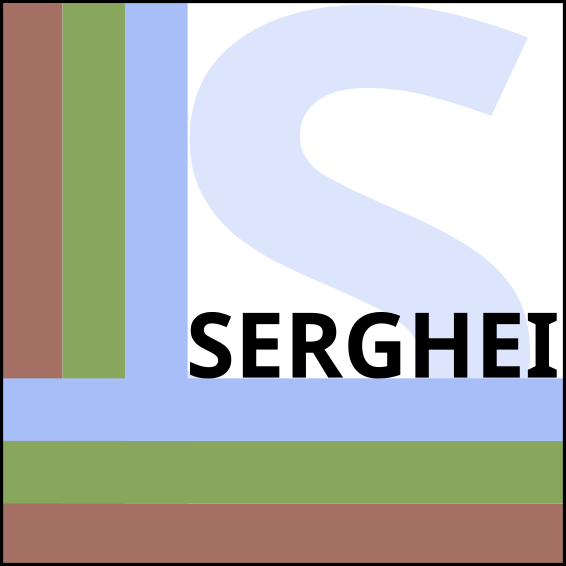SERGHEI
The Simulation EnviRonment for Geomorphology, Hydrodynamics and Ecohydrology in Integrated form (SERGHEI) is a multi-dimensional, multi-domain, and multi-physics model framework for environmental and landscape simulation, intended to simulate water flow and transport across landscape scales.
Cite this software
Description
SERGHEI is a modular simulation framework solving for surface and subsurface hydrodynamics (shallow water and Richards equations) and the associated transport of matter. SERGHEI can therefore addresses a variety of applications, from flood modelling to simulating the cascade of matter across landscapes. SERGHEI is under intense development to expand its current capabilities to the entire framework roadmap including bedload and suspended transport, Lagrangian transport, subsurface flow and vegetation interactions.
SERGHEI is implemented in a performance-portable way, enabling its use across CPUs and GPUs and facilitating its maintenance into future hardware architectures. It is also highly-scalable, allowing for efficiently use in large scale HPC systems.
Further Information
The SERGHEI concept and the implementation of the core shallow water module (SERGHEI-SWE) are presented in:
Caviedes-Voullième, D.; Morales-Hernández, M.; Norman, M. R. & Özgen-Xian, I. SERGHEI (SERGHEI-SWE) v1.0: a performance-portable high-performance parallel-computing shallow-water solver for hydrology and environmental hydraulics. Geoscientific Model Development, 2023, 16, 977-1008. https://doi.org/10.5194/gmd-16-977-2023
The Richards subsurface flow solver is presented in:
Li, Z., Rickert, G., Zheng, N., Zhang., Z., Özgen-Xian, I., Caviedes-Voullième, D. SERGHEI v2.0: introducing a performance-portable, high-performance three-dimensional variably-saturated subsurface flow solver (SERGHEI-RE). Geoscientific Model Development, 2025, 18, 547-562. https://doi.org/10.5194/gmd-18-547-2025
Contact
Dr. Daniel Caviedes-Voullième
Institute of Bio- and Geosciences: Agrosphere, Forschunszentrum Jülich
Simulation and Data Lab. Terrestrial Systems, Jülich Supercomputing Centre, Forschunszentrum Jülich
e-mail: d.caviedes.voullieme@fz-juelich.de

- BSD-3-Clause